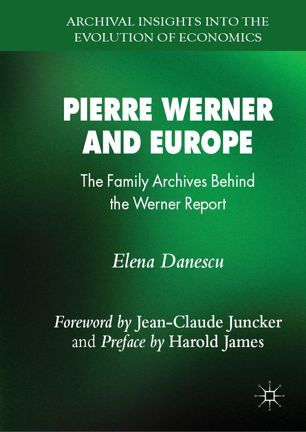

Most ebook files are in PDF format, so you can easily read them using various software such as Foxit Reader or directly on the Google Chrome browser.
Some ebook files are released by publishers in other formats such as .awz, .mobi, .epub, .fb2, etc. You may need to install specific software to read these formats on mobile/PC, such as Calibre.
Please read the tutorial at this link. https://ebooknice.com/page/post?id=faq
We offer FREE conversion to the popular formats you request; however, this may take some time. Therefore, right after payment, please email us, and we will try to provide the service as quickly as possible.
For some exceptional file formats or broken links (if any), please refrain from opening any disputes. Instead, email us first, and we will try to assist within a maximum of 6 hours.
EbookNice Team

Status:
Available0.0
0 reviewsThis book- which features a foreword by Jean-Claude Juncker and Preface by Professor Harold James- examines the European vocation and achievements of Pierre Werner (1913–2002), former Prime Minister, Finance Minister and Foreign Minister of Luxembourg, unanimously recognized as one of the architects of Economic and Monetary Union. The author makes extensive use of Pierre Werner’s previously unpublished archives belonging to the Werner family, opened for the first time for research purposes. The book analyses the Werner Report, negotiations within the Werner Committee, the emergence of the Committee’s views on EMU, their political commitment to a European currency, the similarities and differences between their ideas, their personal networks, the influence of the states they represented, their theoretical and methodological input and their contribution to the political consensus.
Chapters shed new light on various aspects of the European integration process and also on the role of Luxembourg and its European policy. In addition, the author has carried out a series of original interviews with Luxembourg and European figures who share their memories and thoughts concerning Pierre Werner, his achievements and his views on the European integration process, and also other topics such as Economic and Monetary Union and Luxembourg‘s European policy.
This book will be of interest and value to researchers, EU policy makers and students in the fields of political economy, political science, economic history and history of economic thought.